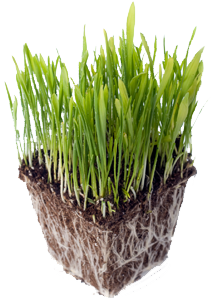Funds back pee in parks
 Researchers want to turn human urine into fertiliser for city parklands.
Researchers want to turn human urine into fertiliser for city parklands.
Under a $2 million ARC Research Hub for Nutrients in a Circular Economy (NICE), researchers from Griffith University’s Cities Research Institute (CRI) are investigating the economic feasibility and practically of converting human urine to fertiliser.
They will also look into any potential health risks and the public response.
Human urine is a treasure trove of nutrients, according to chief investigator Associate Professor Cara Beal. A/Prof Beal played a leading role in designing urine separation systems for Currumbin Ecovillage.
“It’s a concentrated supply of all the nitrogen, phosphorus and potassium needed for plant growth and is surprisingly clean compared to other waste,” she says.
“Current methods to create fertiliser pull nitrogen out of the atmosphere in an energy intensive process with a massive carbon footprint. As a society, if we are to get to net zero carbon emissions we are going to have to move away from synthetic fertilisers.
“Phosphorus on the other hand is mined, with supplies forecast to last no more than 100 years, so it makes no sense to flush these essential nutrients down the toilet.”
NICE aims to change the wastewater industry by creating an unprecedented, city-scale circular flow of nutrients based on urine separation and processing at building level, to produce safe and effective liquid fertilisers.
“We’re working with Queensland Urban Utilities, Department of Environment and Science, and Brisbane City Council Parklands Service to determine the value of urine-based fertiliser and the impact it can have on soil and plant production,” Associate Professor Beal said.
“Human urine contains most of the nitrogen we consume, about ten grams per litre and about a gram of phosphorus, making it a perfect source of nutrients to grow crops we eat, in an ongoing sustainable cycle.”
Historically, humans used urine as both a fertiliser and a cleaning agent. More recently, for the past 100 years up to the 1970s, farmers used combined human waste as a fertiliser on fields.
“Only recently have humans become squeamish about recycling the waste we produce to grow essential food crops and other plants,” Associate Professor Beal said.
“Part of our research will investigate why we have become uncomfortable with the idea of harvesting urine for fertiliser, and how we can temper this concern.
“The public and regulatory authorities have legitimate concerns around potential health issues the technology could pose, with the antibiotics, drugs, hormones and other chemicals we consume that end up in our waste streams.”
The team will assess the health risks and how to positively engage both public and regulatory authorities around the safety and efficacy of the nutrient extraction technology to trap the good nutrients from urine we want to reuse, while simultaneously removing all the unwanted chemicals.
“Designing wastewater infrastructure to tackle urban intensification, waterways pollution and climate change is important on a national and global scale,” said Associate Professor Beal.








 Print
Print